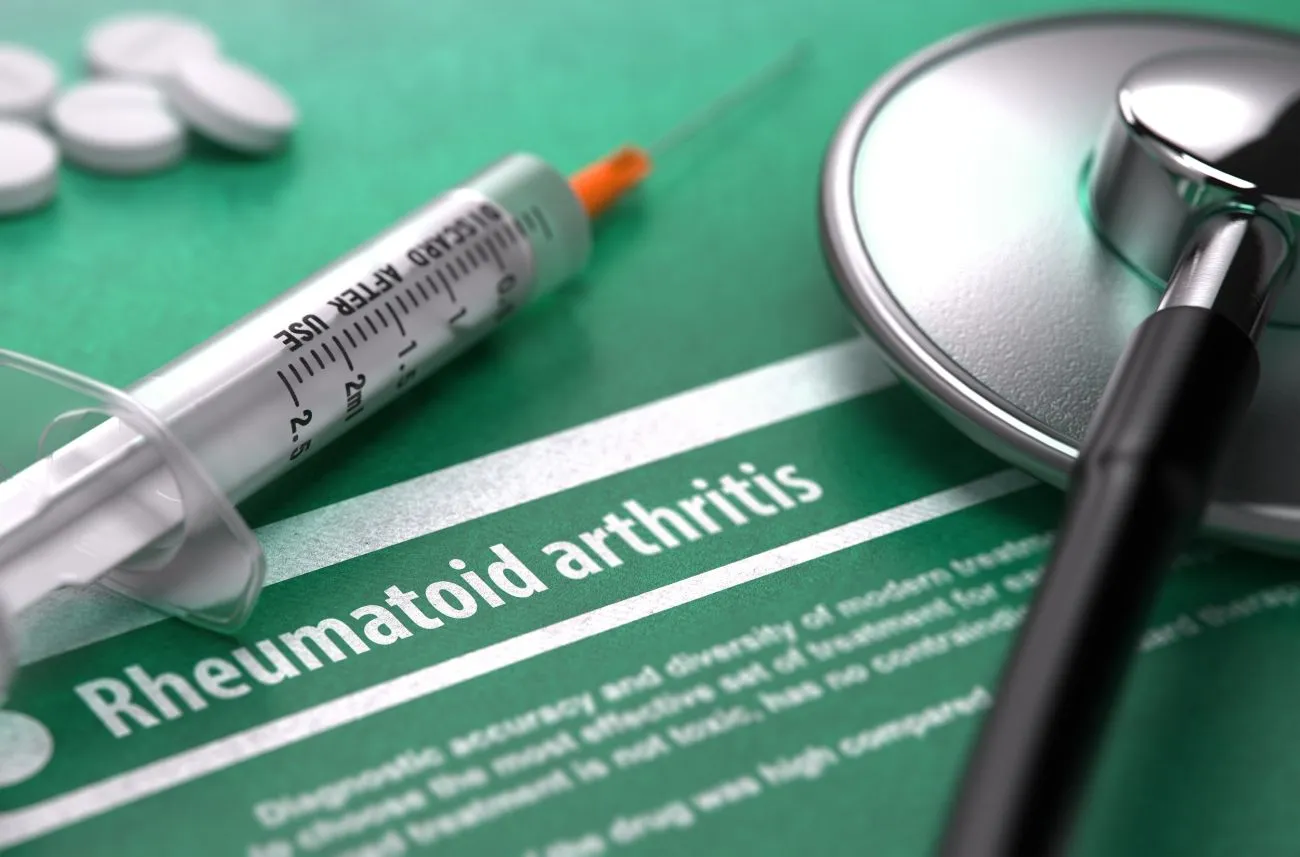Rheumatoid arthritis, or RA, is an autoimmune disorder that can cause a variety of health issues. Here’s what you need to know about this complicated condition. Rheumatoid arthritis often causes inflammation, swelling and stiffness in the joints. It typically affects the hands and feet first although it can affect any joint in the body. Most importantly, rheumatoid arthritis is a complicated condition that can present a number of symptoms and require different treatment and disease management approaches.
Symptoms
Rheumatoid arthritis is characterized by a specific set of symptoms that set it apart from other types of arthritis. Below are some of the most common symptoms seen in people who have been diagnosed with RA.
- Fatigue
- Weight loss
- Joint stiffness that is worse in the morning hours
- Fever
- Swollen joints
- Joint pain
- Reduced range-of-motion in joints
- Redness around joints
- Anemia
- Deformed joints
This type of arthritis can also affect other parts of the body. It has been found to affect the skin, heart, kidneys, lungs, eyes and the salivary glands. Even bone marrow and bone vessels can be affected by RA. These symptoms can flare up at times and disappear for weeks or even months. Some people manage to achieve symptom free periods of remission.
Causes
RA is caused by the attacking of the lining of the joints as a result of autoimmune disorder. When this happens, the lining around the joints becomes thicker than normal. This can eventually lead to destruction of the bone and joint. As it worsens and tendons stretch, the joint becomes misaligned. While medical experts still do not know why certain people develop rheumatoid arthritis, it is believed that viruses, infection or bacteria may bring it on in people who are predisposed to it.
Risk Factors
There are certain things that place some people at an increased risk of developing rheumatoid arthritis. Some people have an antibody known as the “rheumatoid factor” which is found in over half the people diagnosed with RA. Other risk factors for developing this condition include genetics, dental disease, smoking and exposure to silica. Below are some other things that are considered risk factors for RA:
- Being female
- Falling into the age range of 40 to 60 years of age
- Smoking tobacco products
- Exposure to asbestos
- Being overweight
- Having family members diagnosed with RA
Diagnosis
Doctors will take a detailed medical history in order to diagnose rheumatoid arthritis. A doctor will ask questions such as family history, date of symptom onset and previous medical conditions. After taking a history, the doctor then examines the patient. During the exam, the doctor checks for joint mobility, joint tenderness and overall wellness.
Doctors often draw blood and run a battery of laboratory tests to diagnose the condition. A CBC, complete blood profile and urinalysis are the most commonly performed. X-rays may reveal bony changes and damage to joints. If doctors feel they need more detailed images, they may order a CT scan or MRI.
Once a diagnosis is made, primary care doctors typically refer patients to a rheumatologist. This is a specialist experienced in treating arthritic conditions.
Treatment
When treating people who have been diagnosed with rheumatoid arthritis, the long term goal is always remission. The first order of business in treating this condition is to get joint inflammation under control as quickly as possible.
There are medications used in the treatment of RA with good success. Doctors often prescribe NSAIDs to relieve pain and reduce inflammation in the affected joints. These medications are available over-the-counter or stronger ones are available by prescription. The downside of NSAIDs is stomach discomfort. Using these medicines at high doses or for long periods of time can cause stomach pain, bleeding and ulcers.
Doctors often prescribe corticosteroids to reduce joint inflammation. These medicines are typically used in short courses to get inflammation under control and to reduce the negative side effects that come with long term steroid use. Drugs known as DMARDs or disease modifying anti-rheumatic drugs, are often used to achieve remission in the long term. People being treated with these medications are closely monitored by their doctor.
People diagnosed with rheumatoid arthritis may also help keep symptoms at bay by making a few lifestyle changes. Gentle but regular exercise often helps reduce the pain and inflammation associated with this condition. Eating a healthy and well-balanced diet can keep weight within normal limits. This reduces the stress placed on joints and keeps pain at a minimum.
In severe cases of RA, doctors may recommend surgery to replace joints. The damage from RA is irreversible and replacing severely damaged joints with prosthetic joints can help patients achieve remission from pain for periods of time There are no magic treatments when it comes to controlling rheumatoid arthritis. It often takes time for doctors and patients to find what works best for them. However, there are medications that are effective in achieving remission in many patients. In addition, new research is revealing promising new treatments that may one day greatly reduce the pain associated with this autoimmune disorder.
Salmon
Foods rich in Omega-3 fatty acids have historically been recommended due to the compounds anti-inflammatory properites. Salmon, for example, is the most obvious source of Omega-3 fatty acids, but many people don’t realize that other foods contain it as well. If you find the taste of fish unappealing, salmon oil is a perfect substitute — without the fishy aftertaste. Eggs, avocados, almonds, and cauliflower are all similarly good sources of Omega-3, and offer various ways to diversifying your diet.
Lemon
Although lemon juice is known to have anti-inflammatory properties, the jury is out on whether it will help or hurt sufferers of rheumatoid arthritis. Some diets, namely the Alkaline Diet, presume that RA is worsened by the acidity of your body and recommend excluding lemon and other citrus fruits from your diet. There is no evidence to support this theory however, and as with many supplemental treatments, you should discuss any dietary changes with your family doctor.
Turmeric
Traditionally used in Eastern medicine to combat inflammation, turmeric is a science-backed method of treating symptoms of rheumatoid arthritis. RA symptoms are brought on by attacks from your immune system on your body’s tissues, namely the joints in your hands, knees and elbows. Turmeric actively works to block inflammatory enzymes, modifying immune responses, and thus relieving painful stiffness and inflammation brought on by RA. Studies have found that turmeric is more effective at preventing severe symptoms associated with RA than it is at relieving them, and can safely be used as a long-term solution.
Aloe Vera
Aloe vera, whether applied topically or ingested, is a well-known anti-inflammation treatment. Sufferers of arthritis laud aloe vera’s ability to reduce pain and inflammation soon after topical treatment is applied. Rheumatoid arthritis is slightly different from other forms of arthritis in that it restructures the affected areas. Despite those differences, the relief aloe vera provides can help slow down the progression of tissue scarring by combatting the inflammation surrounding affected joints.




